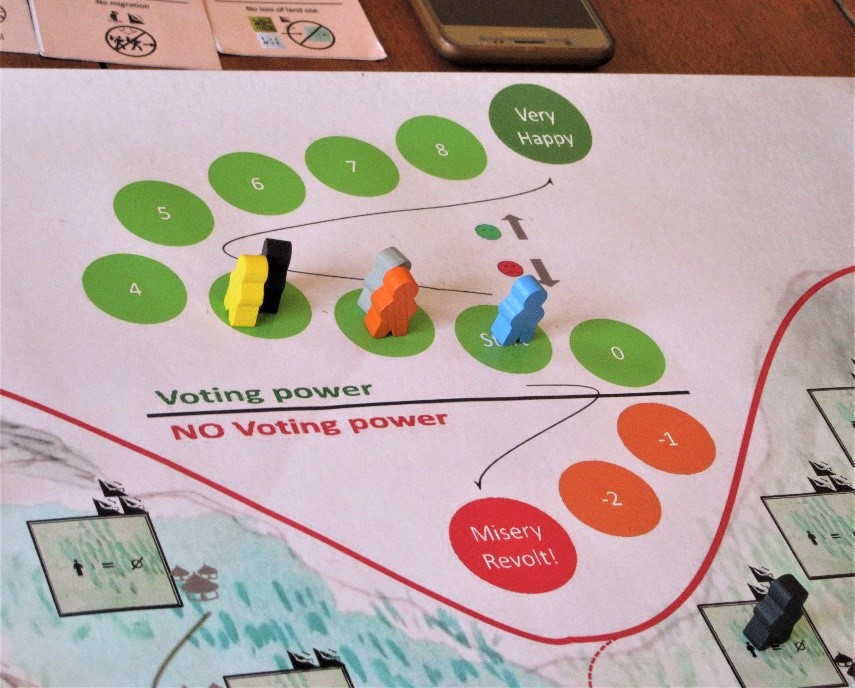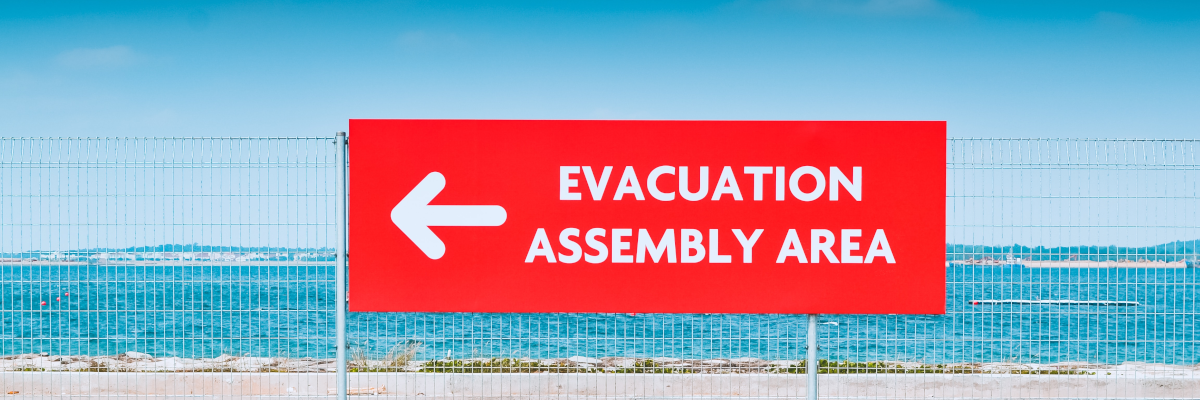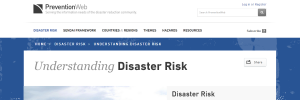Disaster Risk Reduction is about making political choices to reduce disasters. It is also about defining priorities, attributing limited budgets and identifying stakeholders’ roles. Not everyone might agree on how to reduce disaster risk, nor on the priority disaster risk reduction should have on the general development agenda. Such disagreements need to be discussed upon and solutions need to be found.
Board games can be used to create the space for such discussions. The ideal speech scenario which can be created in a game environment allows different views to be expressed and heard. As such, games may help disaster risk reduction governance to take a democratic turn.
From technical fixes to societal choices
Disasters are not merely conceived as natural events, but as products of societal and natural processes with a high degree of uncertainty. The management of these processes which are leading to exposure and vulnerability, can therefore not be left to bureaucrats and engineers alone. This has been widely acknowledged in the last decades. And yet, awareness raising campaigns on disaster risk reduction still mostly focus on transferring knowledge on hazards and on quick responses, rather than on providing the stakeholders with the tools and skills to discuss underlying causes, confront views and define priorities in disaster risk reduction.
New tools for transferring knowledge and skills for a democratic approach to disaster risk reduction are therefore needed. Board games prove to be a promising tool for this.
Board games allow confrontations and discussions
Board games can be conceived as a way to bring people together from different background around the topic of disaster risk reduction. Disasters are staged in predefined conditions and scenarios, whereby unequal power relations and affective experiences related to situations of injustice are made tangible within the game. This provides the starting point for discussions. The presence of factious disasters creates a space which is safe enough for participants to express their opinions and voice real-life concerns.
DisCoord is such a serious game.
DisCoord – A Disaster Coordination game that does not eschew discord

DisCoord is a 5-player board game which aims at making local leaders aware of the interrelation of population, land use, policy measures and disaster. The rationale is that the choice about which policy measure to take is a political choice. This means that it is subjected to contestation, is limited by budget constraints and depends on trading off different values and interests within a community.The final choice depends on the worldviews of the players and their persuasive power, and will likely not satisfy everyone. Participants in the game should experience that decision making in a context of (sometimes) conflicting interests and rampant corruption is challenging and affects the potential for sustainable environmental planning. As such, the game depicts a realistic image of disaster risk reduction, thereby effectively preparing participants to address real-life challenges in DRR.
Disaster risk reduction in Western Uganda
DisCoord has been played for more than 10 times with academics, policy makers and stakeholders in the Rwenzori region in Uganda (5 players for each game session). Game sessions lasted for 2 hours, followed by a lunch break and a debriefing session. They have been recorded (audio and video) and are currently being analysed to estimate the learning outcomes. The purpose is to evaluate the potential of the game as a tool for the co-creation of awareness and for a democratic governance of disaster risk.
The development of the game was inspired by the research findings of a project on landslide risk reduction in the Rwenzori mountains in Western Uganda. Its focus on landslides and floods is therefore related to the problems that were observed in Uganda. Part of the strength of the game as an awareness raising tool derives from the fact that players can relate what is happening in the game to what they regularly experience in their real life. If the game is to be used in different contexts, it should therefore be adapted to some extent. This seems quite feasible for similar contexts in the Global South. Adaptations of the game to different contexts and other disasters can be discussed with the author.
The dynamics that are staged in the game, relating to political decision making in a context of limited budgets, uncertainty and conflicting views, are sufficiently universal to make the game relevant for any mountainous region with landslides and floods. It is the combination of hazards and vulnerable people in the absence of policies for environmental protection, sustainable economic opportunities and effective disaster risk reduction which leads to disaster risk. The game makes this tangible and confronts the players with the need to discuss conflicting views on disaster risk reduction.
How did you like this interview? Let us know in the comment section or on our social media!
You can also fill this short survey to help us create better contentent for you!





